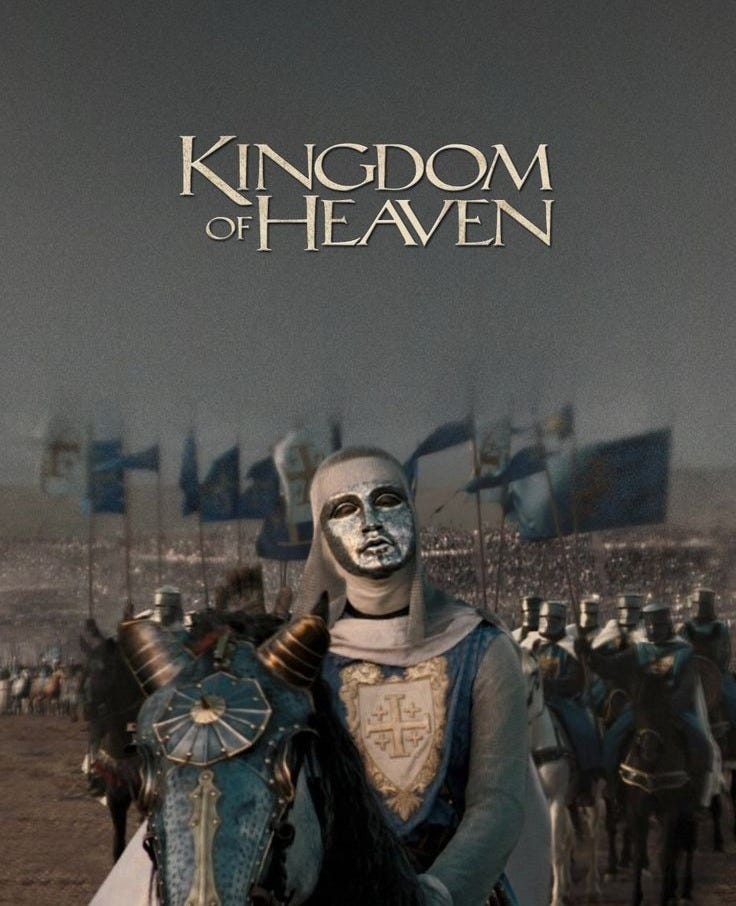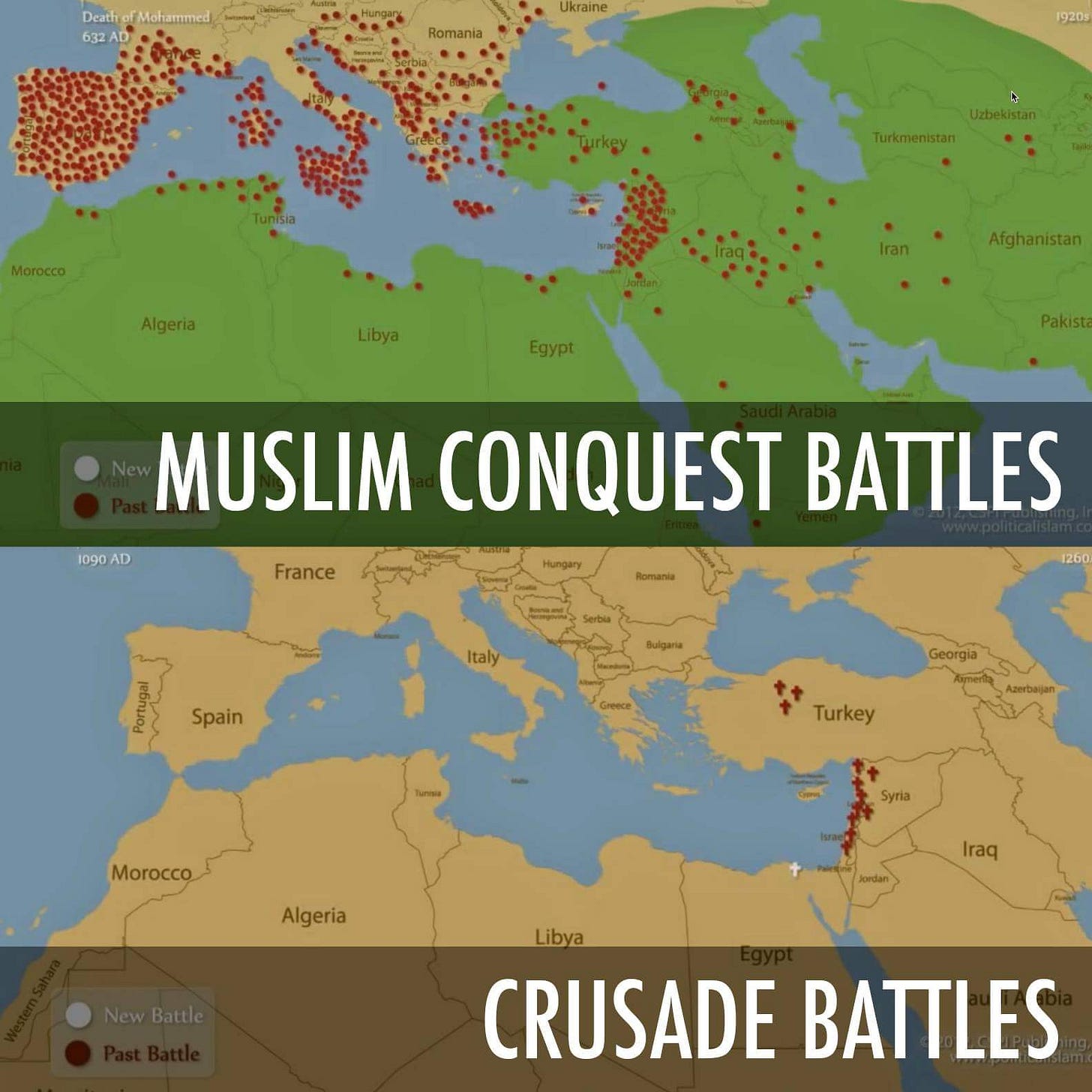Kingdom of Heaven (2005) Historical Epic, Drama -R-
4/10:Epic battles and sporadic Baldwin VI scenes can’t save Kingdom of Heaven from its historically inaccurate, anti-Christian bias. Ridley Scott's agnostic and anti-religious lies make it unwatchable
Recommended for:
Kids-only movie night: No
Family movie night: No
Older kids movie night: No.
Grownups only movie night: No.
Overview:
Kingdom of Heaven (2005) presents a fictionalized account of the Crusades, focusing on Balian, a blacksmith who becomes a knight in Jerusalem during a period of fragile peace between Christians and Muslims. Directed by Ridley Scott, an agnostic filmmaker known for his skepticism towards organized religion, this film serves more as an anti-religious humanist manifesto than a historical recount.
Sex/Nudity/Pornography 2/10:
Implied sex in a scene where a woman goes into a man's room, they kiss, and then start to disrobe. We see a shirtless man as he lies on top of her before the scene cuts away. There's also a subtle suggestion that the Bishop of Jerusalem was homosexual, which is used to criticize the Church. This portrayal is far from the truth; historically, the Bishop was a brave figure who played a significant role in defending Jerusalem and is not known for any such allegations. The movie's depiction is both inaccurate and unfair to his legacy.
Violence/Gore 8/10:
There is a very violent scene showing a priest beheading the dead body of Balian's wife who supposedly committed suicide because one of her children had died. This is a myth: there is zero historical backing for this and it makes no sense considering that children dying was common back then. There is also no historical evidence for priests cutting off the heads of those who commit suicide as some sort of punishment. This is completely made up and a distorted view of Christian theology at the time. Overall the movie’s level of violence is similar to "Gladiator" or "Braveheart" but with an intent to vilify, the violence in "Kingdom of Heaven" showcases intense battle scenes where the Knights Templar are depicted as bloodthirsty villains, slashing and stabbing with a focus on gore that amplifies their negative portrayal. In reality, the Templars were founded as a Chivalric Order to protect Christian pilgrims from centuries of muslim attacks, massacres, and enslavement.
Drinking/Drugs/Smoking: 1/10:
Various scenes show characters drinking wine, particularly among the knights and nobles, but it's not glorified; rather, it's part of the medieval culture depicted.
Cursing/Blasphemy 1/10:
No curse words, but the film contains blasphemous undertones by undermining religious faith and portraying religious leaders negatively, which end up being much worse.
Virtuous Examples 2/10:
While Balian exhibits virtues like bravery and loyalty, these are framed within a narrative that promotes humanism over religious faith. His journey seems to suggest that one can be moral without religion and that religion is harmful to people leading them to do evil things, which will confuse Christian viewers about the context of the Crusades.
Moral Lessons: 1/10:
The film advocates for humanism as the solution to religious conflict, suggesting that peace comes from abandoning religious convictions in favor of human reason. This is at odds with Christian teachings on the source of morality and the importance of faith.
Historical Accuracy:
Medieval Europe's Wealth and Health: In the opening scenes, the movie depicts 12th-century France as a place of repression and poverty, with people fleeing to the Holy Land for salvation. This portrayal inaccurately suggests that Europe was backward compared to the Islamic world, ignoring the 12th-century Renaissance which brought significant advancements in agriculture, technology, and culture across Europe.
Crusade Theology: The film introduces a scene where a priest loudly proclaims, "To kill an infidel is not murder; it is the path to heaven," misrepresenting contemporary theology. In reality, the Crusades were a response to centuries of Muslim aggression, with the goal of liberating holy sites and ensuring the safety of Christian pilgrims. The movie never mentions the historical brutality of Islamic conquests, like their practices of desecration of Christian holy sites, beheadings, and the imposition of the Jizya tax on non-Muslims (dhimmi status)
Contemporary Christian beliefs: Early in the film, Balian is shown as a character who loses faith in God after personal tragedy, suggesting a skepticism or humanism not common among medieval Christians. Historically, figures like Balian would have been deeply religious, with faith playing a central role in their lives. The narrative in the film suggests a secular-humanist view that medieval Christians were not deeply religious or that faith was secondary to other motives, which contradicts the reality of an age where faith inspired monumental decisions like going on a Crusade.
Suicide in the Middle Ages: The movie shows Balian's wife committing suicide because one of her children had died. This is a myth: there is zero historical backing for this and it makes no sense considering that children dying was common back then. There is also no historical evidence for priests cutting off the heads of those who commit suicide as some sort of punishment. This is completely made up and a distorted view of Christian theology at the time.
Portrayal of Religious Leaders: In scenes depicting the Knights Templar, they are shown as bloodthirsty and cruel, particularly in their raids. This contradicts their historical role as protectors of pilgrims and the holy land, acting with discipline and under strict religious vows of poverty, chastity, and obedience just as other monks of the time did. They were simply warrior monks.
Ecumenism: There are scenes in the movie where Christians and Muslims pray together. This overlooks the fact that Christianity teaches the universal love of all people, while Islamic law at the time had specific provisions for non-Muslims, often treating them as second-class citizens under Muslim rule.
Balian of Ibelin: The film depicts the main character Balian as a blacksmith from France, an illegitimate son brought to Jerusalem by his father Godfrey. In reality, Balian was born into nobility as the legitimate son of Barisan of Ibelin in the Kingdom of Jerusalem, far from the humble origins shown in the movie. He married Maria Comnena, a Byzantine princess, which elevated his status, and he played a significant role in the defense of Jerusalem during Saladin's siege in 1187, not as a man of newfound faith but as a strategic and respected noble. His character in the film is a significant departure from his historical background and actions.
Saladin: Saladin is portrayed as a wise, peace-seeking leader, notably in a scene where he discusses war with his generals, suggesting he's reluctant to fight. In reality, Saladin was an ambitious military leader with a clear goal to expand Muslim territories, including the reconquest of Jerusalem. His actions were driven by a sense of jihad, not peace, as evidenced by his multiple campaigns against Christian territories. If we look at the history of Islam at the time it was characterized by centuries of attacks and oppression towards Christians.
Crusaders’ Motivation: The film misleadingly portrays Crusaders as driven by greed or personal gain. In reality, most Crusaders incurred significant financial burdens to journey thousands of miles with their men and equipment into unfamiliar lands, where the primary gain was spiritual in the form of an indulgence, not material wealth. It was actually the Muslim conquests from the 7th century onwards that were mostly motivated by the lust for territorial expansion, slaves, riches and the imposition of Islamic rule over Christian lands. See below an infographic comparing the number of Muslim conquest battles vs the crusade battles to regain what was taken from them and stop the abuse of Christian pilgrims and Christians living under Muslim occupation.
We could go on, but you get the picture. The whole movie is anti-Christian and anti-religious propaganda that pushes that all religions are the same and that religion is superstitious and violent. How can you make a movie about the Crusades whose purpose is to criticize them? How can the guy literally say that we’re not fighting for the Holy Sepulcher, when protecting the religious significance of the Holy Land was a primary reason for these wars?
Awards:
Orlando Bloom won the Jameson People's Choice Award for Best Actor at the 18th European Film Awards. Nominated for several other awards including Best Original Score at the Satellite Awards, Best Costume Design at the Goya Awards, and Audience Award for Best Actor at the European Film Awards. Did not win any of these.
Quotes:
"I put no stock in religion. By the word 'religion' I have seen the lunacy of fanatics of every denomination be called the will of God. I have seen too much religion in the eyes of too many murderers. Holiness is in right action, and courage on behalf of those who cannot defend themselves, and goodness." – Hospitaler
Parent's Response: This quote fundamentally misunderstands Christian teachings. The misuse of religion by some does not negate its spiritual and moral guidance. Christians are called to act with courage and goodness, but these virtues stem from love of God and neighbor, as guided through the Christian religion.The Bible warns against false prophets and those who twist faith (Matthew 7:15-20).
"Thank you, your Eminence, you’ve taught me so much about religion," sneers Orlando Bloom at the Patriarch of Jerusalem, who has suggested either abandoning the Christians in Jerusalem to be slaughtered by Muslim besiegers or converting to Islam to avoid martyrdom and repenting later.
Parent's Response: This sarcastic remark reflects cynicism towards Christian leadership that is unwarranted from a historical and theological viewpoint. True Christian leaders are called to shepherd their flock through trials, not abandon or betray them (John 10:11-13). The suggestion of conversion to avoid persecution contradicts the Christian ethic of standing firm in faith, even unto martyrdom, as exemplified by Jesus and many saints (Matthew 10:22). The film's portrayal of such cowardice and betrayal misleads about the expected integrity and resilience of Christian clergy.
When Balian refuses to participate in a palace plot because it would violate his oath as a knight, a once-idealistic knight cynically says, “Jerusalem has no need of a perfect knight” and Sibylla also tries to convince Balian to participate in the plot: “There will be a day when you will wish that you did a little evil to serve a greater good.”
Parent's Response: The cynicism in suggesting "Jerusalem has no need of a perfect knight" undermines the Christian ideal of striving for moral perfection as taught by Jesus in Matthew 5:48, "Be perfect, therefore, as your heavenly Father is perfect." The pursuit of knightly virtues like courage and honor corresponds with the Christian call to holiness, which is not about perfectionism but about living out one's faith with sincerity and courage, especially in the face of evil and death. Conversely, the temptation to do "a little evil for a greater good" is directly contrary to Christian ethics; as the Bible teaches that the ends do not justify the means when it comes to sin or evil actions (Romans 3:8). Christians are called to do good at all times, not to engage in lesser evils for perceived greater goods.
Final Rating: 3/10:
Kingdom of Heaven has a handful of extremely viral scenes, especially when showing Baldwin VI, the massive Christian army preparing to attack with a huge golden Cross at their front, and other impressive scenes, but it these are golden nuggets sink in a sea of anti-Christian propagranda. The atheist director, Ridley Scott, promotes an anti-religious humanist narrative that misleads viewers about the actual historical situation. In reality, the Crusades were a war of self-defense against centuries-long Muslim aggression. The film's ahistorical lies are at odds with Christian values, making it unsuitable for family viewing or for those who lack this historical understanding. Just watch the most viral scenes and skip the atheist preaching. To make this easier for you here are the movie’s best scenes:
To learn more about the true history of the Crusades:




